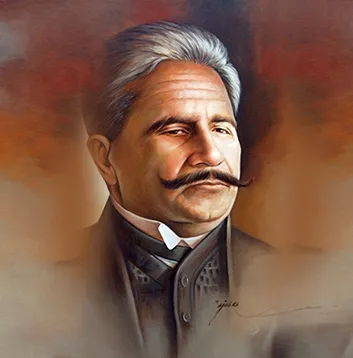The Punjab Arts Council (PAC) in Rawalpindi held a painting competition dubbed “Mojza-e-Fun” (wonder of art) in honour of Iqbal Day. Attendees included students from Rawalpindi Women University, Wah University, Iqra University, Fatima Jinnah University, and the Arts Council.
Faiqa Saeed emerged victorious, while Ayesha Aslam secured the second position. Second and third place went to Nimra Zia and Umm Ayman, respectively. The exhibition’s curator was Samiha Khaliq.
Distinguished guest rewards were given to the winners by Waqar Ahmed and Naheed Manzoor of PAC.
Manzoor recognised Pakistani poet and philosopher Allama Muhammad Iqbal.
The orator asserted that the poetry of Iqbal had an influence on the ensuing era of civilised, wise, and accepting people. Manzoor went on, “Allama Iqbal believed that youth should take the lead in advancing the country’s development. They are crucial for finding solutions to the issues the Islamic world is currently dealing with.”
Read More
Ahmed contends that in order to fully appreciate the personalities and aesthetics of Eastern poets, critical thinking is required. Iqbal’s worldview was based on youth, despite the fact that people of different ages and socioeconomic levels respected his poetry and scholastic prowess.
Some claim that Iqbal had an influence on Urdu poetry. His reputation as a poet in the subcontinent was based on his nazms, even though they were aware that he could also produce ghazals and nazms.
Allama Iqbal
Sir Muhammad Iqbal’s cultural and political ambitions for British-ruled Indian Muslims inspired Pakistan. His 20th-century Urdu poetry is famous. Allama is his honorific.
Kashmiri Muslim Iqbal from Sialkot, Punjab, got his B.A. and M.A. at Government College Lahore. In 1899–1903, Lahore Oriental College hired him to teach Arabic. He wrote well then. Parinde ki Faryad, an early animal rights ballad, and Tarana-e-Hindi, a children’s patriotic hymn, were popular Urdu poems. He earned a second B.A. from Trinity College, Cambridge, in 1905 and a Ph.D. in philosophy from Munich University. He practiced law in Lahore in 1908 but wrote about politics, economics, history, philosophy, and religion. His poems Asrar-e-Khudi, Rumuz-e-Bekhudi, and Bang-e-Dara earned him knighthood. Iran identifies him as Iqbāl-e Lāhorī (Iqbal of Lahore) for his Persian works.
Share this content:

